This is the first question most people ask, so I have thought of a lot of reasons, and this is the story that has developed, containing the turning points in my intellectual, professional, and heart journey to find this work.
I watched the news pretty much every night with my parents. MacNeill & Lehrer were basically part of the family. My dad would explain things I didn't understand to me, and he did a great job. It seemed like there was nothing he couldn't explain so it made sense. I remember him explaining why people were knocking down the Berlin wall. I was 9 then and I hadn't known there was a Berlin wall before it came down (so he had a lot of explaining to do on that one).
I remember the first time my father had no words to explain what was happening on the news. It was 1992; I was 12 and I heard the anchor announce there were "rape camps" somewhere in Europe I'd never heard of before. As the weeks followed, we heard more about genocide and mass rape. I knew about the Nazis, and had studied about genocide in school, but I thought it was something that happened in history. This was happening now, and I was horrified by the international community's lack of response. I still feel pangs of guilt for not doing anything at the time about it. But then I remind myself that I was just a girl then and now I do have skills and power to be able to do something about this kind of human rights violation.
Flash forward to my last semester in college, when I had to take a class to satisfy certain requirements, and the 2 classes that qualified were: "Jesus and the Apocrypical Texts" or "Genocide." After much deliberation, I chose the genocide course and this random choice steered my professional interests in a very particular direction, which I had no idea about at the time. During this class, I found out more about the sexual violence used as a weapon of genocide in the former Yugoslavia, and I discovered that rape featured prominantly in the Rwandan genocide of 1994.
Curious, horrified, and continuing to follow the thread, I did some more historical investigation and found out that rape was a huge part of WWII (Rape of Nanking, Rape of Berlin) and WWI. Looking waaaaay further back, I found some really explicit references to wartime rape in the Bible; the most salient is the Rape of the Sabine women.
Rape is present in every historical and contemporary war, but its meaning and function are defined by contextual, cultural, and situational factors in each conflict. The purposeful use of rape as a strategy of genocide and ethnic cleansing became my main scholarly interest, with the intention of developing interventions for populations impacted by wartime sexual violence.
So it became clear to me that rape and sexual violence against women has been part of human conflict, conquest, and warfare since time immemorial. Disturbing, but true and ultimately not that much of an epiphany...
so on I went to thinking about what to do about the problems faced by astounding numbers of these survivors (pragmatic girl that I am).... and I thought, "what would be the best way to find out how to help these war survivors?"
and here came the idea of the century: "go and ask them"
and so I have followed the thread back to the former Yugoslavia... to Croatia.... to Bosnia-Hercegovina.....
where I intend to conduct interviews with women about their wartime experiences, ongoing problems, coping strategies, and what helped them to recover and survive.
It has been 10-15 years since the height of combat in various areas of Croatia and Bosnia-Hercegovina and I wonder how survivors are doing. I would like to ask them what interventions they received, if any, and what helped them in their process. I would like to know what they feel would have been helpful (assistance they did not receive) that they believe would be helpful to current or future survivors faced with similar difficulties.
Ultimately, I hope to use the information gathered through this project to inform my life's work, which will be to design and implement interdisciplinary responses to mass trauma (such as the situation in Darfur).
Me and Anne Frank
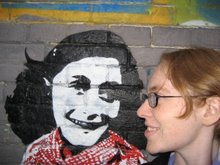
Day 1: Amsterdam
Most Important Posts to Read
- Why Croatia and Bosnia-Hercegovina?
- What's Up With Bosnia-Heregovina (BiH)
- Sarajevo
- Siege of Sarajevo
- Sarajevo Tunnel
- Sarajevo Roses
- Fantastic Meeting (Sarajevo)
- I Left My Heart in Sarajevo
- WWI and Sarajevo
- The Orient Express (Zagreb-Sarajevo)
- The (new) Old Bridge of Mostar
- When in Sarajevo...
- International Criminal Court
- International Criminal Tribunal on the former Yugoslavia
- My First Mosque
- Self-Defense
Tuesday, May 22, 2007
Subscribe to:
Post Comments (Atom)
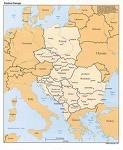
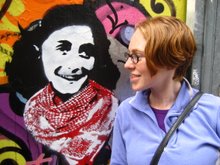
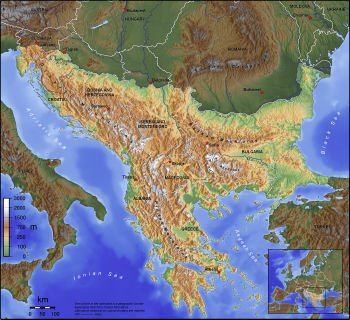
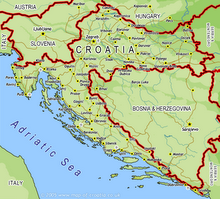
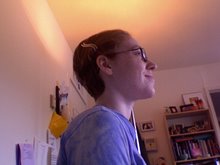
No comments:
Post a Comment